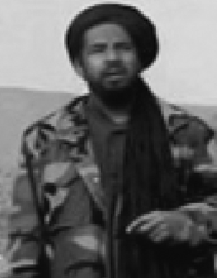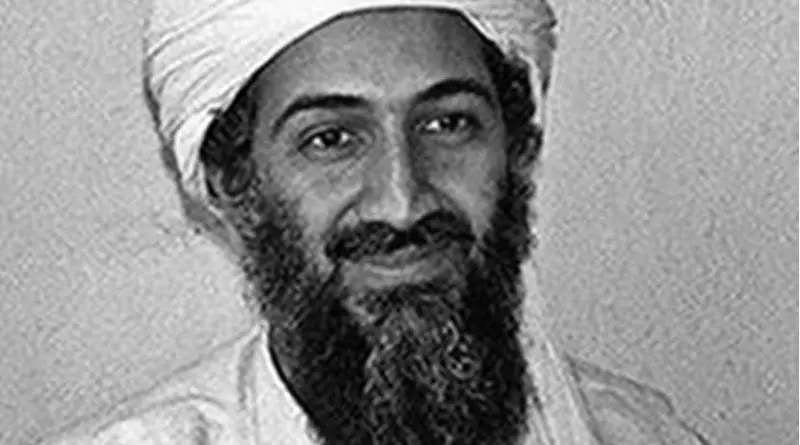Libyan Abu Yahya Al-Libi Poised To Succeed Bin Laden
By Magharebia
By Camille Tawil
The success of US special forces in killing al-Qaeda leader Osama bin Laden in Pakistan sparked a series of speculations about the names of likely candidates to succeed him. One of the prominent names that appeared is Hasan Qaed, better known by his aliases “Abu Yahya al-Libi” and “Younis al-Sahrawi”. What is the role that this Libyan Islamist may play in the new al-Qaeda’s leadership that will be chosen in the post-bin Laden era?
In fact, Abu Yahya al-Libi is one of the most prominent media faces of al-Qaeda, although his actual involvement in the organisation dates back to only a few years ago. Al-Libi climbed up the ladder of al-Qaeda’s hierarchy extremely quickly, becoming the third man in the organisation – behind bin Laden and Dr Ayman al-Zawahiri – in just a few years.
Abu Yahya started his career in al-Qaeda in the period that followed his escape from Bagram Prison, north of Kabul, in the summer of 2005. Before that, he was not a member of the organisation. When he was arrested by the Pakistani security agencies and handed over to the United States after the fall of Taliban regime at the end of 2001, al-Libi was a member of the Sharia group of the Libyan Islamic Fighting Group (LIFG) which has been based in Afghanistan since the 1990s. When the “war on terror” toppled the Taliban regime, LIFG had to flee from Afghanistan. However, many of them were arrested by the security forces. Abu Yahya was one of them. He was transferred to Bagram Prison where he was detained until July 2005 when he managed to escape with three other prisoners.

After fleeing from Bagram Prison, Abu Yahya found that al-Qaeda became the only Arab organisation that was able to operate on the ground, along Taliban in Afghanistan (and more precisely Haqqani network in the eastern part of the country) and also in tribal areas in Pakistan, where a Pakistani branch of Taliban was being established. This reality was completely different from the situation under Taliban’s rule, when there were different Arab groups that described themselves as jihadists and that were operating there without having to join al-Qaeda.
In this way, Abu Yahya al-Libi and other leaders of LIFG who stayed in the Afghan-Pakistani border areas soon found themselves in a position where they had no other option but to join al-Qaeda, especially after that organisation managed to attract armed groups that became arms for it in the Arab world, such as al-Tawhid wal Jihad group under Abu Musab al-Zarqawi who became the emir of al-Qaeda in Iraq in 2004, and the Salafist Group for Preaching and Combat (GSPC) that joined al-Qaeda in 2006 and became the Maghreb branch of the organisation in 2007. Abu Yahya al-Libi seems to have joined al-Qaeda in 2007 too, when LIFG field leader Abu Laith al-Libi announced that a “group” of his organisation joined al-Qaeda.
A few months after the announcement that LIFG in Afghanistan joined al-Qaeda, Abu Laith al-Libi was killed in a drone raid in the area of Waziristan in January 2008. With the absence of Abu Laith al-Libi from the scene, Abu Yahya became the most prominent face of al-Qaeda’s spokespersons, together with Dr Ayman al-Zawahiri. Al-Libi started to appear regularly in a series of video and audio recordings and in the other communications that al-Qaeda releases through its media arms (al-Sehab and al-Fajr). He tried to lay down the framework for the organisation’s approach and to defend its policies and goals. Through these releases, it was clear that Abu Yahya al-Libi is considered the “Sharia ideologue” of al-Qaeda. This task was apparently facilitated by the leaders of his former group – LIFG – who sent him in the 1990s to Mauritania to study Sharia and jurisprudence; something that enabled him to get in touch with some of the famous Salafist sheikhs of that country before he moved again to Afghanistan (Al-Libi married a Mauritanian woman and has children from her).
It would be worth noting that Abu Yahya al-Libi’s releases over the past years were not restricted to a certain topic; rather, he addressed different topics of concern to the Arab and Muslim worlds. It means that al-Qaeda leader Osama bin Laden must have allowed him such freedom in drawing up al-Qaeda’s policies and expressing its positions, whether regarding Somalia, Iraq, Palestine or even the Maghreb, including his own country Libya. Al-Libi did not only clarify al-Qaeda’s positions from the field developments that were taking place in Arab countries (such as the bombings in Algeria, the fighting of al-Shabab al-Mujahideen in Somalia and the killings carried out by al-Qaeda in Iraq), but also started to talk about issues on jurisprudence and thought, such as his strong opposition to the “dialogue of religions” which the Kingdom of Saudi Arabia was co-sponsoring in 2008.
In spite of the diverse topics that al-Libi was talking about or commenting on in the name of al-Qaeda, speculations have always linked him to the situation in the Maghreb, especially when Algeria’s GSPC and a part of LIFG joined al-Qaeda in 2007. The two Algerian and Libyan groups were not on good terms with each other because of reservations believed to have been made by LIFG on GSPC. The Libyans have apparently not forgotten that they lost a number of LIFG’s prominent fighters in the 1990s at the hands of militants suspected of being members of the Armed Islamic Group (GIA) which was disbanded and gave birth to GSPC. However, the approval of al-Qaeda’s leaders of GSPC joining bin Laden’s al-Qaeda in 2006 and its turning into a proxy of al-Qaeda in all the Islamic Maghreb (AQIM) in early 2007 posed the problem of how to reconcile between the Algerians and their Libyan counterparts in LIFG.
In fact, it is not clear whether Abu Yahya al-Libi has played any role in reconciling the two sides, but former LIFG leader Nu’man Bin Othman says that the disputes between Algerian and Libyan jihadists were resolved under a decision from Dr Ayman al-Zawahiri who set a zone of operations for al-Qaeda’s Maghreb branch that was led by Algerians (Abou Moussaab Abdelouadoud) in the Maghreb excluding Libya which al-Zawahiri asked to be consulted before carrying out any activities in.
Although it was al-Zawahiri who has apparently resolved this problem, reports indicated that Abu Yahya al-Libi has moved from al-Qaeda’s hideouts in Waziristan to al-Qaeda’s Maghreb arm’s area of operations in the Sahel. These reports are yet to be confirmed, but they wouldn’t, in fact, be unlikely. Abu Yahya al-Libi knows the area very well because he hails from Libya and because he studied Sharia sciences in Mauritania. In addition, the rapid developments in the region, especially the bloody conflict in Libya between the revolutionaries and Moamer Kadhafi’s regime, might have been another factor for making Abu Yahya al-Libi try to come to the Maghreb region. However, this scenario assumes that Abu Yahya al-Libi won’t succeed bin Laden as leader of al-Qaeda, but will remain a senior leader thereof, perhaps in charge of issues on Sharia and jurisprudence, as he currently does. He’s not known to be a fighter as much as a distinguished person in Sharia sciences and eloquence of expression.
Whether Abu Yahya al-Libi moves to the Maghreb or stays in the Afghan-Pakistani border areas, he will undoubtedly try to get in touch with his older brother Idriss who was one of six LIFG leaders who issued jurisprudential revisions in 2009 entitled “Corrective Studies in Understanding Jihad, Accountability, and the Judgment of the People”, which included positions that criticised the exaggeration of some groups in their interpretations of the concepts of jihad and thought. It was widely believed that these criticisms were directed at al-Qaeda and other groups that were influenced by its ideology, although LIFG didn’t name those who were meant by such criticisms. Three months ago, the Libyan authorities released Abu Yahya’s brother, but he soon disappeared after the outbreak of the revolution against Kadhafi’s regime.
It’s not clear what type of dialogue may be held between the two brothers, one of whom took sides with al-Qaeda while the other took sides with its criticisers. However, the result of such a dialogue, if it ever takes place, is worth following to see whether the younger brother convinces his brother of al-Qaeda’s correct positions and policies or the older brother convinces his brother of the mistake of that organisation and its commitment of acts that may not be sanctioned by Islam!

